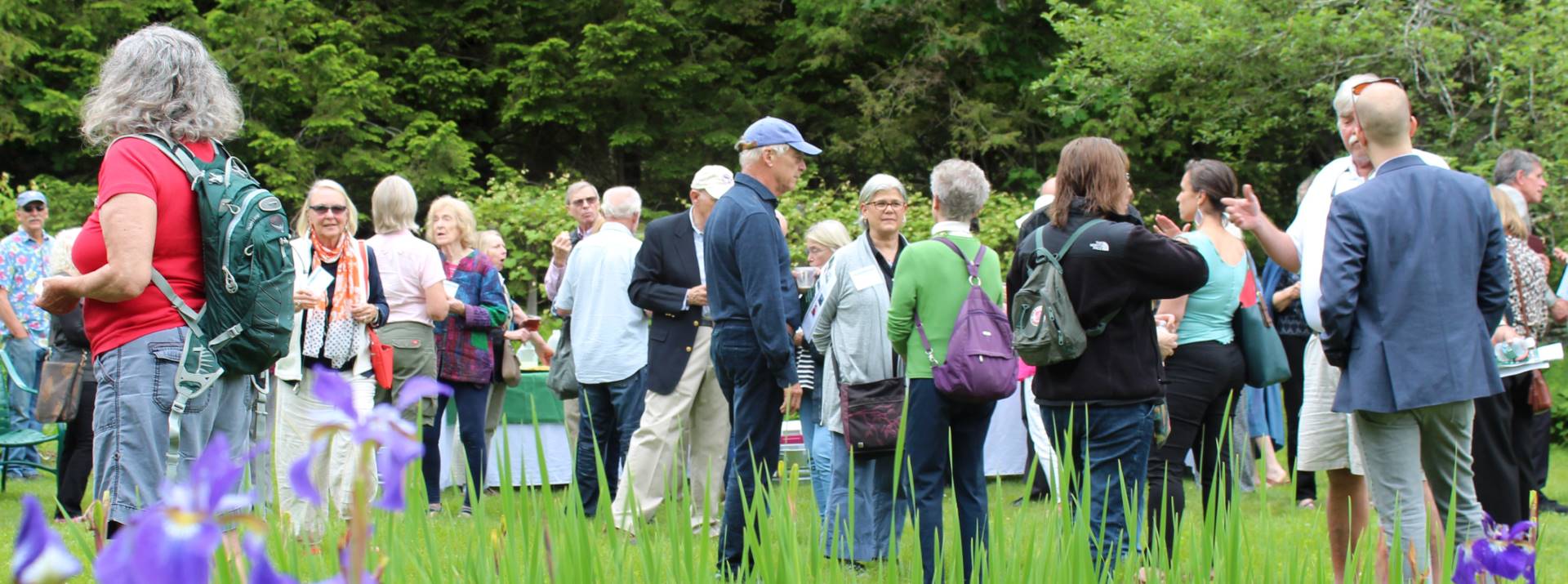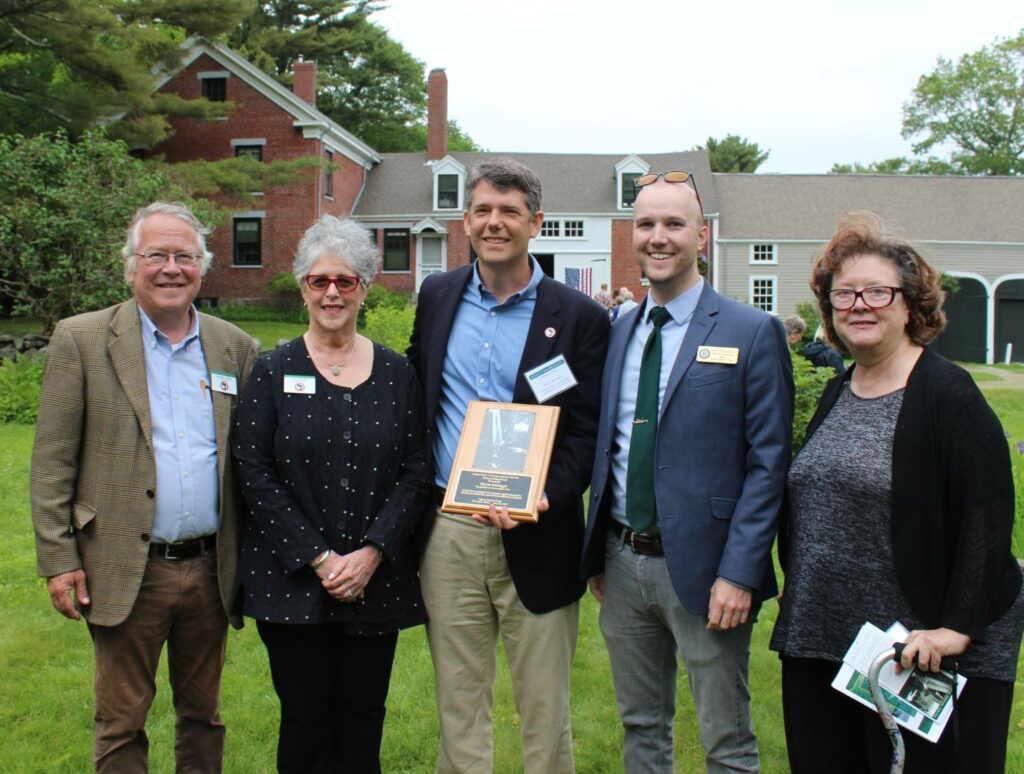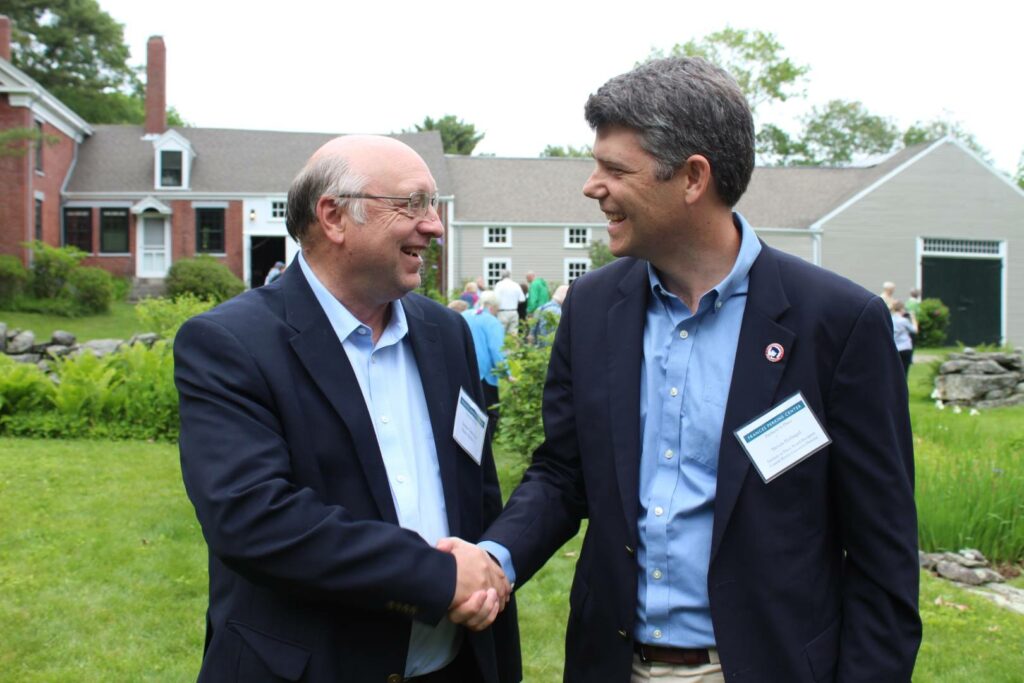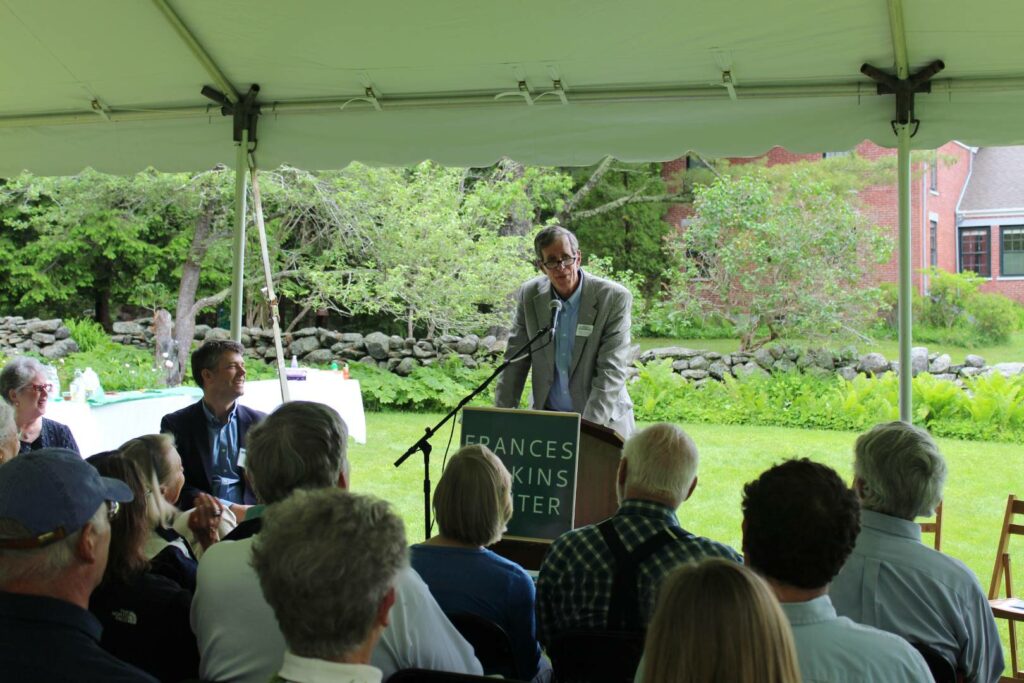Partners In Place: Honoring Steven Hufnagel 2019
PARTNERS IN PLACE: A SPECIAL EVENT HONORING STEVEN HUFNAGEL
une 26, 2019: Frances Perkins Center honored Steven Hufnagel, executive director of Coastal Rivers Conservation Trust, with the Partners in Place award at the Frances Perkins Homestead National Historic Landmark, recognizing him for work that has ensured the permanent protection of many acres of land within the Damariscotta watershed. Since 1993, 53 of the Homestead’s 57 acres have been protected by a conservation easement managed by Coastal Rivers under its earlier name as the Damariscotta River Association.
Frances Perkins Center board chair Sarah Peskin noted that Hufnagel works as Frances Perkins did, seldom calling attention to himself, instead laboring out of the limelight to bring complex projects and people together, commending him for his interdisciplinary approach, knowledge of geology and natural resource management, and low-key consensus-building skills that he uses to quietly steward local conservation efforts benefitting the health of the land and people of the Damariscotta region. Peskin cited Hufnagel’s leadership in establishing the Twin Villages Food Bank Farm, in facilitating the merger of two active conservation organizations to form Coastal Rivers Conservation Trust, for expanding hands-on education programs, and for overseeing the preservation and reinvigoration of Round Top Farm – a local landmark.
Coastal Rivers’ members and directors, Senator Dana Dow, representatives from US Senator Angus King’s office, friends and family of the honoree, and members of the Frances Perkins Center enthusiastically responded to remarks by Greg Paxton, executive director of Maine Preservation, the statewide membership organization that promotes and preserves historic places, buildings, downtowns and neighborhoods to strengthen the cultural and economic vitality of Maine communities. In stating why the Perkins Homestead was named to his organization’s 2018 Most Endangered Historic Places list, Paxton said:
The principal structures of the homestead, stewarded by the family, have survived nobly over 180 years, and now is the ideal time for the next chapter for this property…. The Center has demonstrated that it is an institution that has the ability, outreach and capacity to carry out this ambitious program. And like Margaret Chase Smith, Edmund Muskie and other distinguished Mainers, Frances Perkins is a nationally prominent figure that all of us should be proud of and seek to honor. With her national following, it is most fitting that she be honored here in Maine.
Steven Hufnagel, in accepting his award and following a standing ovation, thanked others in the community for their ability to work together to achieve common goals and reaffirmed:
It has been our pleasure to hold a permanent conservation easement on this property, a step we take only for properties that stand out above the rest. It is unique because of the intact nature of its pastoral landscape, so well cared-for and relatively unchanged, and one of few remaining such original saltwater farms along the Damariscotta River. Also noting: While the conservation easement is written to conserve important elements and attributes of the landscape, it does not guarantee public access, so I’m especially pleased to learn that making the site available for compatible public access, including foot trails, is a high priority of the Center.
The shift to Frances Perkins Center ownership will ensure that visitors have the opportunity to feel the same influences of the storied human and natural landscape that helped to set Frances Perkins on her historic path.
Following the award presentation, guests toured the Perkins Homestead, visiting the 1837 “Brick House” built by the great-grandparents of Frances Perkins as a wedding present to her parents, and constructed of bricks made on site at the family brickworks that operated on the homestead’s Damariscotta River shore c. 1795-1895.
Before departing, guests viewed conceptual plans presented by the Frances Perkins Center to preserve the saltwater farm’s existing structures, with renovations to make them safe for visitor use and extend the existing barn with a small contemporary addition to house exhibit and public meeting space for educational programs and community use. Attendees were thanked for their ongoing support and reminded that funding is still being sought to acquire and preserve the Frances Perkins Homestead.



